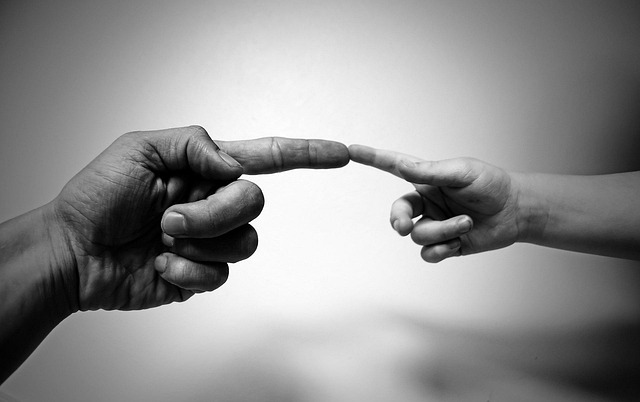
The Power of Empathy in Deepening Intimacy: Relationship Advice
Empathy plays a pivotal role in nurturing intimacy within relationships. It is the ability to understand and share the feelings of another, creating a genuine connection that transcends surface interactions. When we practice empathy, we do not just hear our partner’s words; we feel their emotions and validate their experiences, cultivating an atmosphere of safety and trust.
To illustrate the power of empathy, consider a common scenario: after a long day, your partner comes home stressed and drained. Instead of dismissing their feelings or attempting to offer solutions immediately, empathetic responses might involve active listening and thoughtful reflection. Simply saying, “I see that you’re overwhelmed. Do you want to talk about it?” can open the door to deeper conversations. This simple act of acknowledging their feelings not only makes them feel heard but also invites vulnerability and openness.
In relationships, fostering empathy enables couples to navigate conflicts more constructively. When misunderstandings or disagreements arise, rather than resorting to blame or defensiveness, taking a moment to understand your partner’s perspective can lead to more peaceful resolutions. By doing so, you demonstrate that their feelings matter, which can disarm tensions and facilitate a healthier dialogue. It’s not about agreeing on every point but about recognizing that each partner’s feelings are valid and worthy of consideration.
Moreover, empathy enhances emotional intimacy by creating a deeper sense of connection. When partners continually strive to understand each other’s needs, fears, and aspirations, they build a solid foundation of trust. Emotional intimacy is not solely about physical closeness; it’s about sharing aspects of your life and being authentically vulnerable with one another. This transparency can lead to greater satisfaction and fulfillment in the relationship.
Practicing empathy in small, everyday moments can yield significant benefits. A simple gesture of kindness, like a warm hug or a gentle touch, can speak volumes. Remember that non-verbal communication often enhances empathetic exchanges. So, while engaging in conversation, make eye contact, nod in understanding, and show that you’re truly present. These non-verbal cues can deepen the emotional connection, reinforcing your partner’s sense that they are loved and valued.
Furthermore, empathy helps partners to realize that their relationship is a shared journey. It encourages them to see challenges from each other’s point of view, transforming obstacles into opportunities for growth. This perspective creates a bond—not just between two individuals but as a unified team facing life’s ups and downs together. When both partners feel understood, the relationship flourishes, leading to shared growth and enrichment.
Incorporating practices of empathy into your relationship requires intentionality and effort. Start by checking in with your partner regularly, asking open-ended questions that allow them to express their core feelings. Share your insights as well, balancing the dialogue so that it becomes a two-way street of understanding. Create a safe space where both partners can express their thoughts without fear of judgment.
Empathy is also about being patient. It takes time to truly understand someone else’s experiences and emotions. It’s not about rushing to fix problems but instead allowing your partner to feel safe in expressing their vulnerabilities. This time you invest in empathy will undoubtedly deepen the intimacy of your relationship, creating a lasting connection that both partners cherish.
Ultimately, the most profound relationships stem from the willingness to empathize and connect genuinely. By embracing empathy, couples can unlock the door to a more intimate, satisfying, and loving partnership, marked by mutual respect and understanding. So take a moment, breathe, and choose to see the world through your partner’s eyes—this small shift can lead to transformative changes in your relationship.

